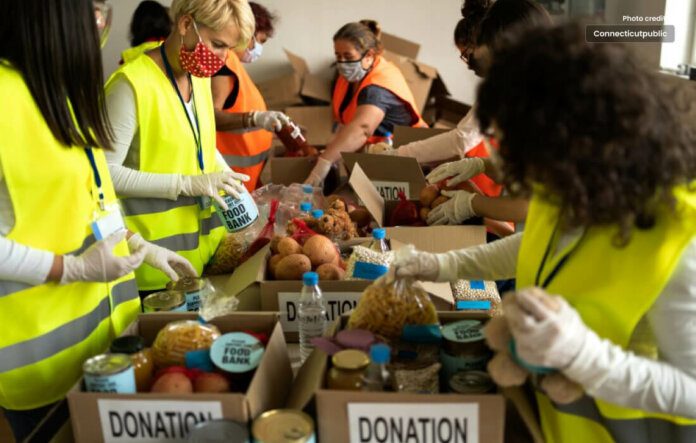Donating Food are a straightforward yet effective act of kindness that not only allays immediate hunger but also paves the way for a more promising future.
Food is a fundamental necessity of life, yet countless people around the world struggle with hunger and malnutrition on a daily basis. While this sobering reality may seem overwhelming, each one of us has the power to make a positive impact and bring about change.
-
Alleviating Hunger
Hunger is a persistent global issue that affects millions of people, including children, the elderly, and vulnerable communities. Donating food to food banks, shelters, and charitable organizations helps ensure that those who are struggling can have access to a nutritious meal. By providing essential sustenance, we can alleviate the immediate effects of hunger and give individuals the strength they need to overcome challenges, pursue education, and improve their overall well-being.
-
Reducing Food Waste
Food waste is a pressing problem worldwide. According to the Food and Agriculture Organization (FAO) of the United Nations, about one-third of all food produced globally goes to waste. By donating surplus food, we can divert it from landfills and redirect it to those who need it most. Food recovery programs connect restaurants, supermarkets, and other establishments with local organizations, ensuring that excess food is distributed to individuals and families facing food insecurity. Donating food not only benefits those in need but also contributes to a more sustainable and environmentally friendly approach to food consumption.
-
Building Stronger Communities
Donating food fosters a sense of community and compassion. It brings people together, encouraging empathy and social responsibility. When we donate food, we become part of a collective effort to support our neighbors and build a stronger society. Food drives, community kitchens, and other initiatives not only provide sustenance but also create opportunities for people to connect, share experiences, and work towards a common goal. These interactions foster a sense of belonging, empathy, and understanding among diverse groups, contributing to the overall well-being of our communities.
-
Supporting Health and Nutrition
Access to nutritious food is vital for physical and mental well-being. Unfortunately, many individuals and families experiencing food insecurity are unable to afford or access healthy meals. By donating food, we can contribute to their nutritional needs, ensuring they receive essential vitamins, minerals, and macronutrients. Healthy food donations can have a long-term impact, especially on children’s development and academic performance. By supporting health and nutrition, we help break the cycle of poverty and improve the overall quality of life for individuals and communities.
-
Empowering Others
Donating food is not just about providing sustenance; it is about empowering individuals and communities to thrive. By addressing immediate hunger, we can free up resources for other essential needs, such as education, healthcare, and employment opportunities. When people have their basic needs met, they are better equipped to focus on personal and professional growth. By contributing to food security, we give individuals the chance to realize their potential, pursue their dreams, and become active contributors to society.
Conclusion
Donating food is a tangible and impactful way to make a difference in the lives of those who are hungry and less fortunate. By addressing immediate hunger, reducing food waste, building stronger communities, supporting health and nutrition, and empowering individuals, we can create a brighter and more equitable future for all. Whether it’s through food drives, volunteering at local food banks, or supporting organizations dedicated to fighting hunger, each act of food donation matters. Together, let us harness the power of compassion and generosity to nourish lives and build a better world.
Find out more about https://rockedgeurdu.com/




